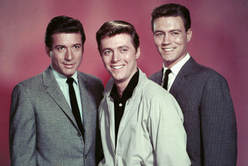weekly column
|
Each week, find a commentary on something connected to verses of Torah or another source of wisdom
|
|
Each week, find a commentary on something connected to verses of Torah or another source of wisdom
|
 The Exodus:5 Project Then take the vestments, and clothe Aaron with the tunic, the robe of the ephod, the ephod, and the breastpiece, and gird him with the decorated band of the ephod. Exodus 29:5 The college graduation season swings into high gear this month and does not wind down until the middle of June. Tens of thousands of graduates, most of them at the beginning of their adult lives, will have degrees bestowed upon them as they parade in identical robes and silly hats. The initials of those degrees will land on their resumes as permanently as a tattoo. With good luck, they will not also come to regret the degree. Not all the graduates will be guided in their work life by the degree they earn. Even some of those with graduate degrees, including people with professional degrees like doctors and lawyers, will choose a different path early on. But many will start down a road highlighted on the map of their lives by the education, inspiration and validation they received in undergraduate and/or graduate school. It is not all the baggage they will take on that journey. Friends, music, books, politics, sports, student loans and other things will follow them during the first years – maybe more. Some will be lost, others will take their place. But almost everyone will believe that the person under the gowns they wore at graduation is essentially the same person who, forty or fifty years later, is ready to give up the work of their adult life and return to the person who set off down the road. It is not true. When I read the description of the first robing of Aaron, I cannot help but think of the sunset of his life, when he is stripped of these very garments. While the pageantry of this dry description is often read with disinterest, the meticulous dressing of the High Priest for the first time as he is officially invested with the authority of his life’s work ahead is filled with foreboding to those who know the end of his story. Day in and day out he will be responsible for the rituals on which the Israelites depend. He will preside over collective transgression, lose half of his children on the most important day of his life and contend with rebellion from within his own kinsmen -- experiences for which his holy instructions did not prepare him. But they all left impressions, to be sure, that penetrated beneath the tunic, the robe, the ephod and the breastpiece. So connected with his priestly responsibilities had Aaron become that, when it came time for him to die, Moses took him to the top of a mountain and removed the clothing that symbolized his work. Moses dressed one of Aaron’s surviving sons in those same gowns. And Aaron died. It is a lot of years since I put on a graduation gown to be called “rabbi” for the first official time. Nothing remains in my wardrobe from that day – the gown was rented, and the suit seems to have shrunk about four sizes. The baggage I took on my journey has changed, but never disappeared. I like to think that underneath my prayer shawl, I remained the same person. It is not true. I talk with a lot of my contemporaries who are asking themselves what their next chapter will be. Having spent so many years in one kind of work – primarily, but not exclusively, the pulpit rabbinate -- they wonder what else they can possibly do. They can do a lot of things, is the correct answer, but they may not yet have discovered the ones they want to do. The more poignant question is what has penetrated the tunic, the robe, the ephod and the breastpiece that they think they have removed. I do not mean what lasting impression the significant moments they experienced have left. Of course we are changed, all of us, by deathbed visits, students whose excellence we have provoked, guidance we have invented for the lost who sought our direction and so much more. I mean what impact on that self-beneath-the-robe has been created by years of leading and not following, of having the authoritative answer, of controlling others’ behavior by telling them to stand or sit or bend their knees. The inside person, so motivated by the spirit of learning and discovery before the authorization of the office, may look forward to returning the robes and taking a seat in the crowd. Inevitably, it isn’t so easy. I had a profound conversation with a friend and colleague who has had my experience of leaving the pulpit. He said to me that our Judaism had been deeply altered by the constant demand that we perform it for others. He has found it impossible to take a seat among every-day Jews and listen to someone else tell him to stand, sit or bend his knee. No one told us this would happen. And if they did, we never would have believed them. Maybe things are not quite so pronounced for the doctor or attorney. May the scientist doesn’t miss the lab, the teacher doesn’t miss the classroom, the social worker doesn’t miss the client, the writer doesn’t miss the assignment. But I have come to understand that whatever your sacred calling is, it saturates your outer layer and infuses what is beneath in incremental and imperceptible ways. Graduates won’t hear it. But when they finally take off the ephod, they will know Aaron not only at the dawn of his mission, but also at the sunset.
0 Comments
Leave a Reply. |
Archives
October 2023
Categories |